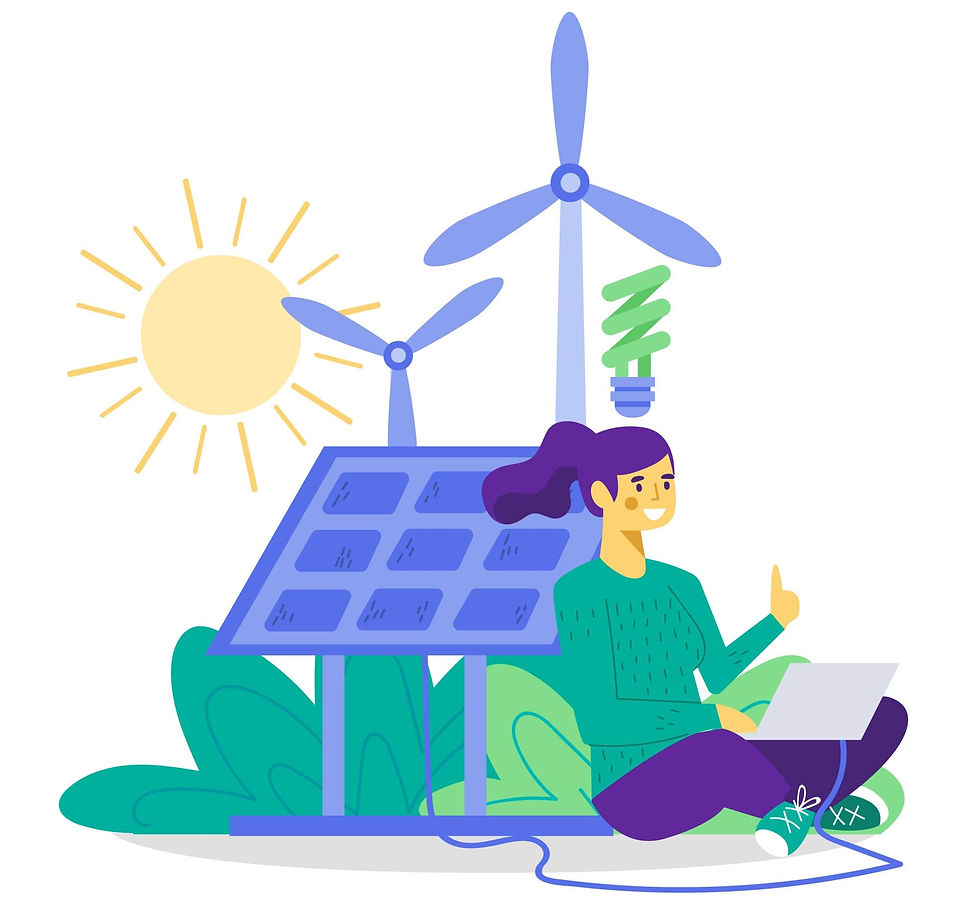Our Planet, Our Power: Women and Renewable Energy in India
- Anomitra Biswas
- Apr 22, 2025
- 3 min read

Earth Day was first celebrated in 1970 when millions united to voice their concerns over pollution and environmental degradation and its 55th anniversary this year represents a significant milestone in the ongoing global movement for environmental awareness and climate action This year’s theme Our Planet Our Power highlights the importance of embracing renewable energy sources in India and underscores the vital link between individual empowerment and the ability to enact change for our planet's health through sustainable energy solutions.
The challenges we face today including climate change biodiversity loss and plastic pollution demand a renewed commitment and innovative solutions This year’s theme calls on everyone to acknowledge their role in environmental stewardship and to engage in efforts that support sustainability clean energy adoption and climate resilience In India as in many other countries renewable energy has emerged as a critical pathway to sustainable development It has become increasingly clear both nationally and globally that including women in the renewable energy sector in India benefits not only the individuals involved or the cause of gender equality but also enhances the effectiveness of clean energy transitions.

Women empowerment plays a vital role in the renewable energy landscape often serving as leaders and key stakeholders in communities that depend on sustainable energy sources In many developing nations especially India women are typically tasked with making household energy decisions particularly those related to cooking heating and lighting This hands-on experience gives them unique insights into energy needs and usage patterns Many rural areas of India still struggle with inconsistent electricity supply but clean energy technologies are beginning to meet the needs of these communities It has been noted that women in these areas almost unanimously prefer access to clean and reliable energy for lighting cooking and other essential domestic tasks No wonder as this directly empowers women freeing up their time for education economic opportunities and entrepreneurship.

Transitioning to renewable energy sources also brings significant health benefits especially in countries like India where traditional fuels such as wood charcoal and kerosene remain prevalent in rural communities Using these fuels often results in indoor air pollution which can lead to respiratory diseases and other health concerns to which women and children are the most vulnerable due to proximity Access to clean energy solutions in India such as solar cookers and biogas systems can increase their chances of experiencing improved health outcomes and overall quality of life.
In India women are often at the forefront of community initiatives with environmental activism and the promotion of sustainable development drives unsurprisingly proving no exception to the rule It has been noted that women can become powerful agents of change within their communities driving local development and climate-friendly practices It must be noted that renewable energy initiatives can also lead to economic independence for women still a rare achievement in many regions of India as these emerging industries urgently need skilled workers to install maintain and operate clean energy systems Furthermore as women tend to reinvest their income in their families and communities this leads to better educational and health outcomes for their children and fosters overall social well-being Achieving gender equity in clean energy isn’t just about social justice it’s also a pathway to sustainable rural development.
At both the regional and national levels women’s leadership in renewable energy is essential for creating equitable energy policies and inclusive practices When women are part of decision-making processes for energy projects their perspectives and needs are prioritized resulting in more effective and community-driven energy solutions The growing participation of women in clean energy projects particularly in leadership roles not only empowers women but also increases community awareness and support for environmental sustainability efforts enhancing a culture of green innovation and climate responsibility.

As such integrating women into the renewable energy workforce in India is crucial for achieving both gender equality and environmental sustainability This intersection creates new pathways for green growth improving public health economic opportunities and community resilience across India As the nation moves towards a future powered by clean and renewable energy it’s imperative to continue fostering initiatives that empower women and provide them with the necessary resources to thrive and lead in this vital sector.



